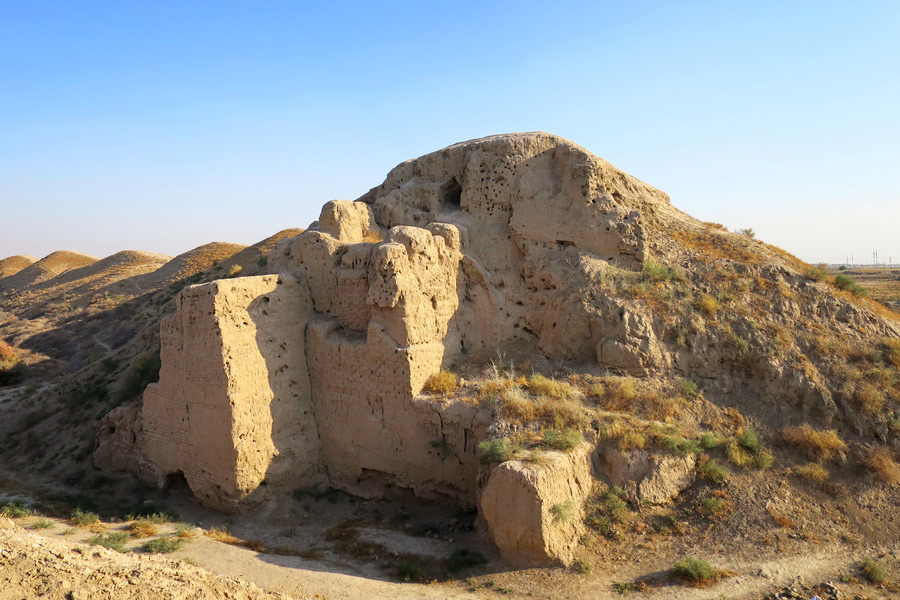Gyaur-kala, Merv

In Turkic languages, "Gyaur" means "infidel", referring to those who do not practise Islam. The name of the fortress in ancient Merv, Gyaur-Kala - "Fortress of the Infidels" - was given by the Arabs who conquered it in the early 8th century. However, the fortress itself dates back much earlier, to the 4th-3rd centuries BC.
Gyaur-Kala covered more than 300 acres and was surrounded by square walls about 2 kilometres on each side, with towers evenly spaced around the perimeter. Each wall had a gate providing access to the settlement.
This fortress was a thriving centre of craftsmanship and trade in ancient Merv. Potters, millers and blacksmiths all worked within its walls. Evidence of this vibrant activity has been uncovered during excavations, including the remains of a metalworking workshop, quarters for millers and ceramists, as well as clay figurines of people and animals. The remains of a statue of Buddha and the ruins of a Buddhist and a Christian monastery have also been found.
Gyaur-Kala was strategically located at a crossroads of trade routes, with the Great Silk Road passing nearby. This prime location brought a steady flow of wealthy caravans to the city, which likely contributed to the fortress’s longevity, allowing it to outlast many others in the region.
Before receiving the name Gyaur-Kala, the city was known as Antioch of Margiana, named after the Seleucid king who founded it, Antiochus Soter, who reigned from 280 to 261 BC. At his command, the oasis of Merv was surrounded by high walls to protect it from sandstorms and nomadic invaders.
The prosperity of Gyaur-Kala continued until the 8th–9th centuries when it was conquered by the Arabs. After the conquest, a mosque was constructed within the fortress, and traces of it have been found during archaeological digs. Over time, the center of Ancient Merv shifted to Sultan-Kala, located about four kilometers to the west.
Excavations in Merv reveal that the cultural layers reach a depth of 12 meters, and the study of this historical site continues to this day. For tourists visiting Merv, a tour of Gyaur-Kala offers the opportunity to explore the ruins of this great architectural monument and create their own story of discovery.
